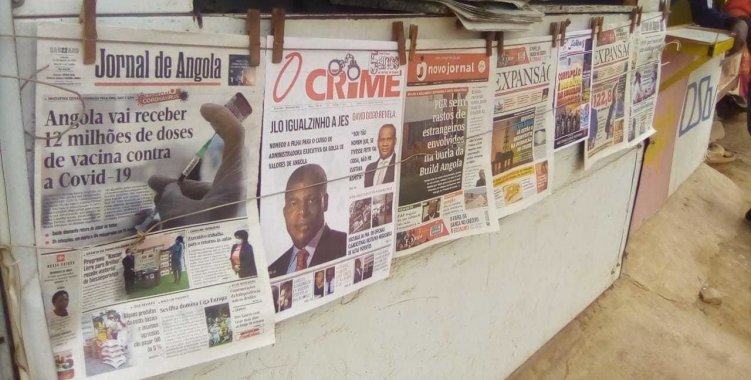André Mussamo, who was speaking this Wednesday to Lusa at the end of the inauguration ceremony of the new governing bodies of MISA Angola, considered there to be a "regression of press freedom in Angola in comparison with the political cycle" that the country is experiencing.
"With the arrival to power of President João Lourenço there seemed to have been a breath of fresh air on this issue, but in recent times it is beginning to be pinched," he said, adding: "We hope we are wrong, hopeful that it is just a little turbulence.
For the new leader of MISA Angola, whose board of directors was elected on 21 March 2020, democracy depends on functional freedom, having pointed to actions that are configured in a "retreat" from press freedom in the country.
"Yes, clearly [there are retreats], for those who had a greater volume of media acting both public and private, which as an example now come under the control of the government, is to be concerned," he noted.
Several private media organizations, including TV Zimbo, Palanca TV, O País newspaper, Rádio Mais, Rádio Global, a production company of audiovisual content and a print shop, have moved into the state sphere by "being constituted with public funds.
The action is part of the process of recovering state assets within the scope of the program to combat corruption, one of the axes of governance of the President, João Lourenço.
The actions of public information bodies have recently been criticized in various social and political circles in Angola for their absence from various public demonstrations held in the country, namely against the actions of the security forces during the covid-19 pandemic.
According to André Mussamo, the argument evoked by the authorities about the reversal of some organs in their favor for having been constituted with illicit resources from state funds is understandable, warning, however, of a possible monopoly.
"What we defend and suggest, and this is our opinion, is that the real situation should be diagnosed as soon as possible and that, for example, a process of alienation or privatization should be decided upon in order to diversify and multiply the dependency of the media itself," he stressed.
"To have them all concentrated in a kind of state monopoly is not healthy, and our great interest is that it would be good for these organs to be returned to the private sphere, licensing them to people with the capacity to keep them functional and at the service of democracy," he argued.
Palanca TV was recently made official as the new sports channel of the Public Television of Angola (TPA), with the authorities guaranteeing that new thematic channels will be launched in the near future.
Mussamo says this is a legitimate decision of the government, the transformation of Palanca TV into a thematic channel, "because it owns the organ and may make it what is in its interest.
"But from the point of view of the diversity of organs, it's not good that a channel, rather private, when returning to its legitimate owner is immediately co-opted to become the public channel of the sport," he said.
In recent days a new suspension of the SIC Notícias channel from the DSTV satellite TV distribution channel platform, which operates in Angola, has been announced.







